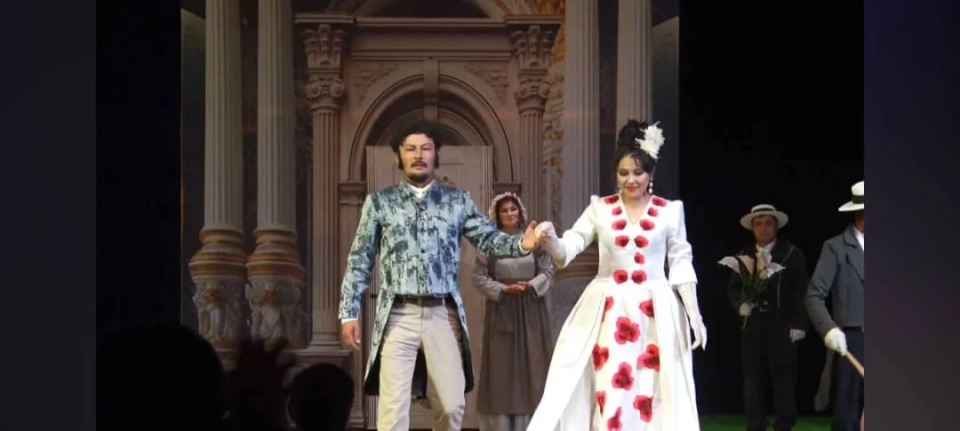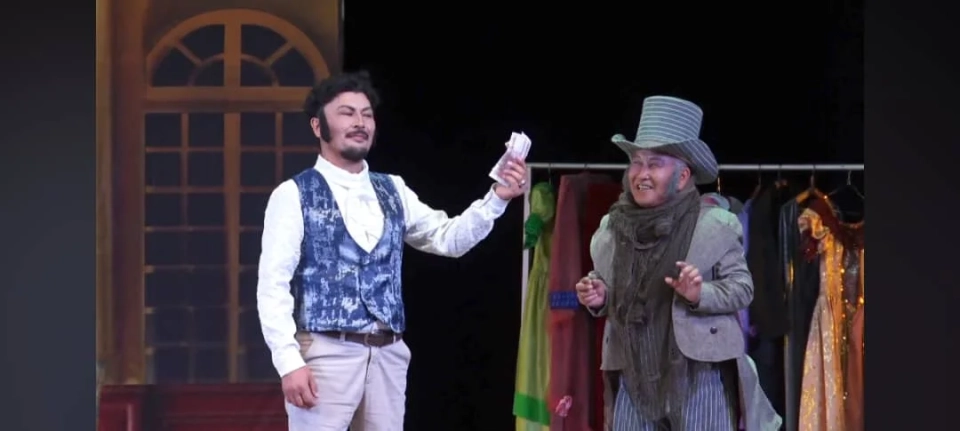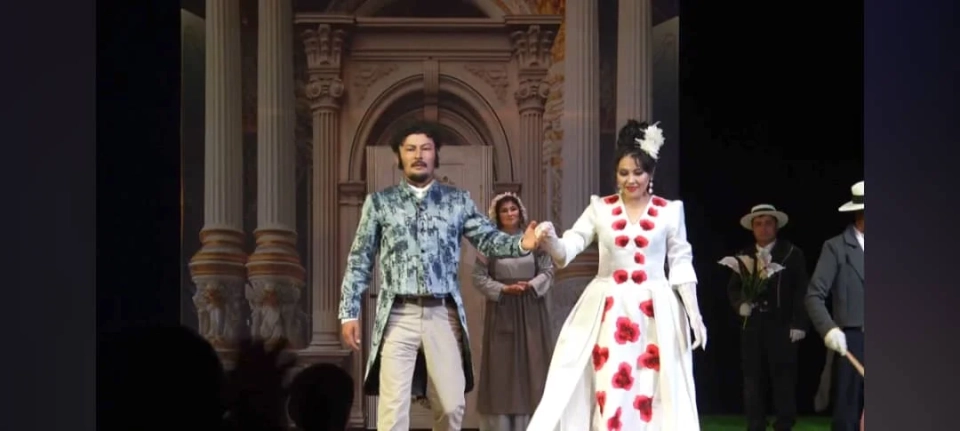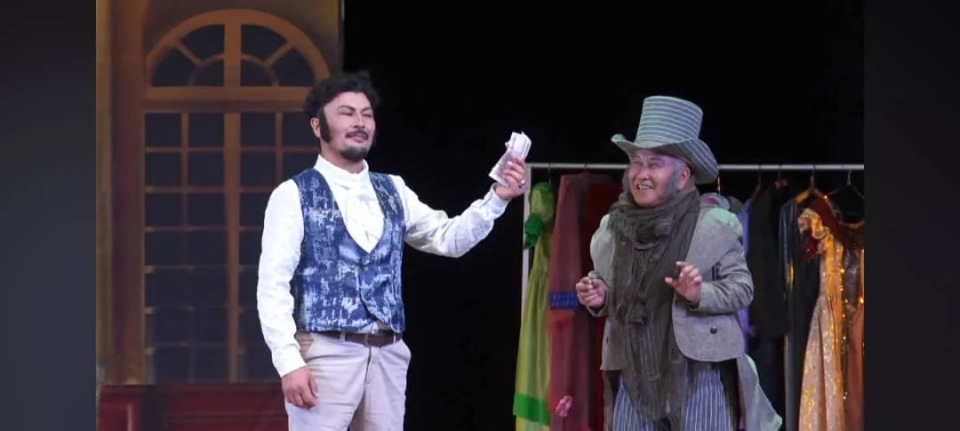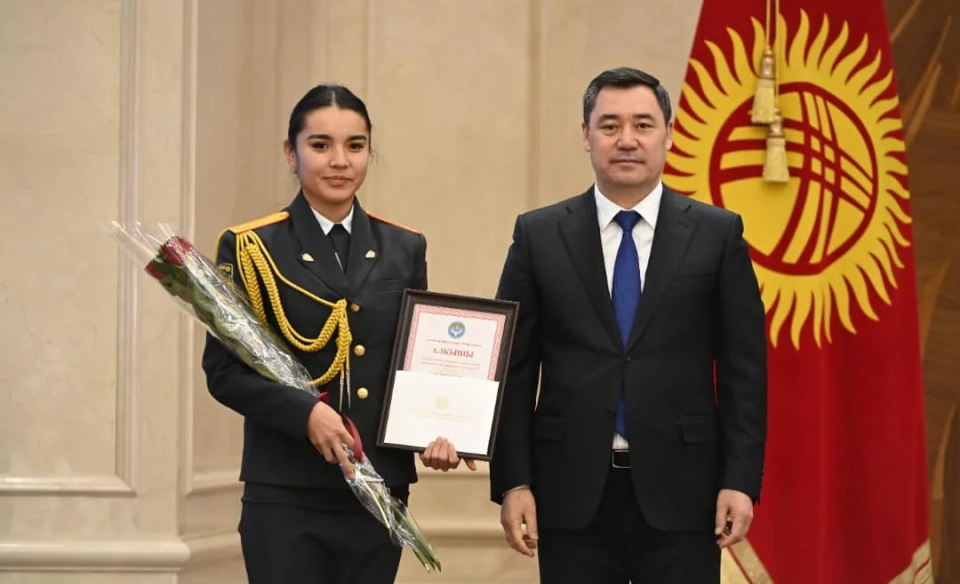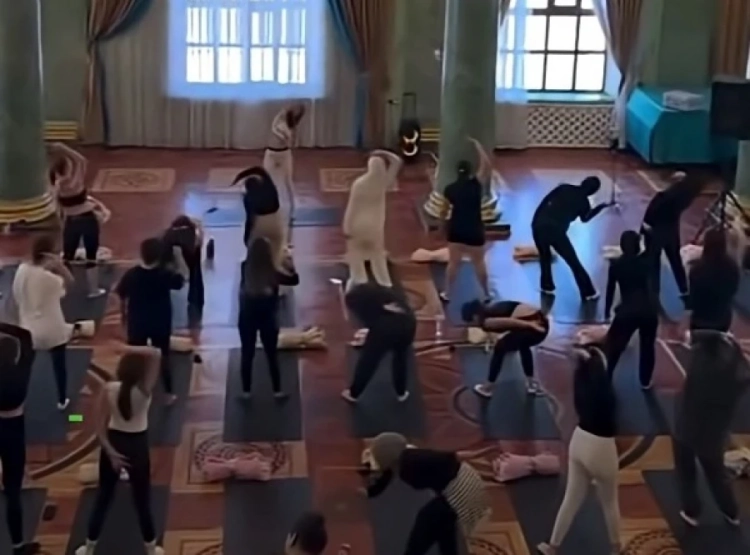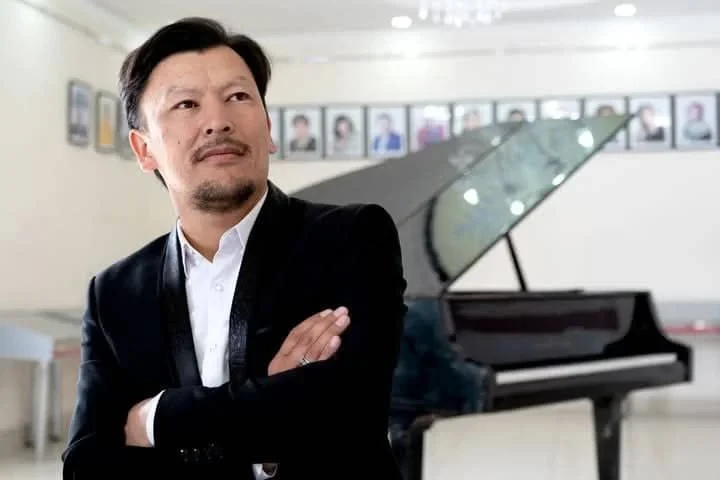
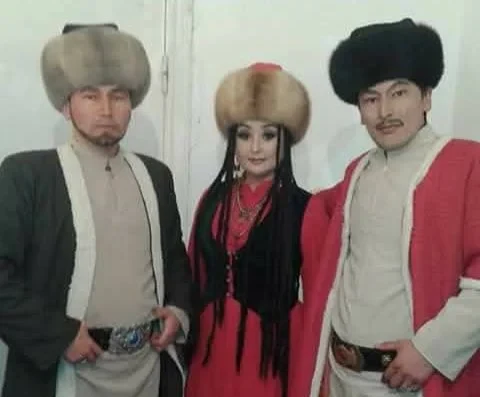
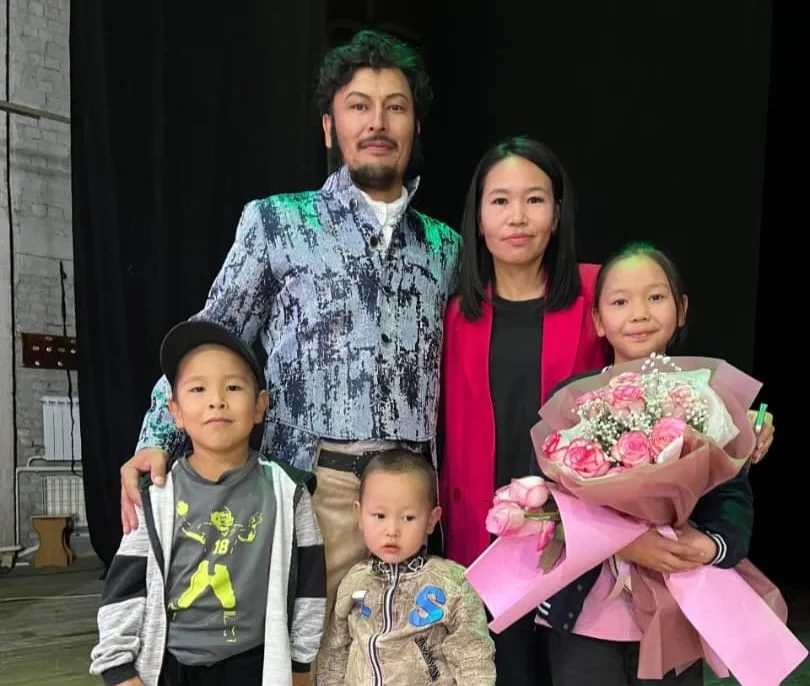
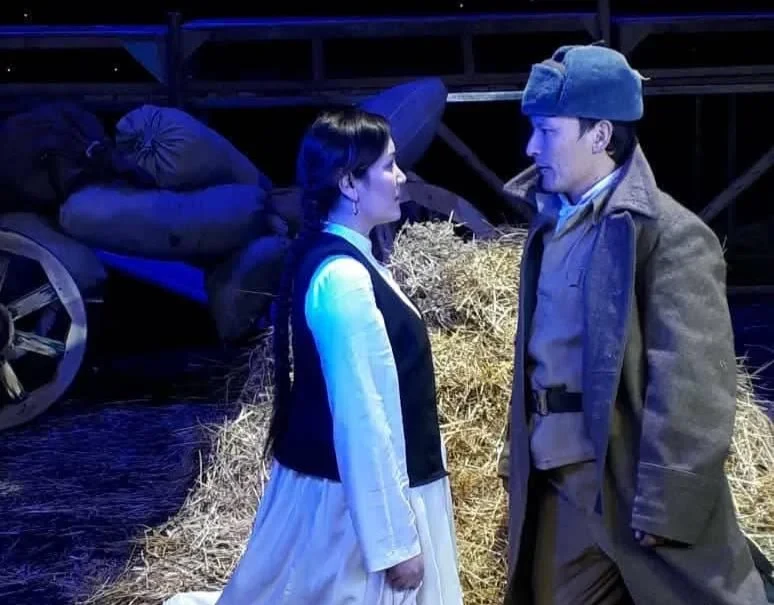
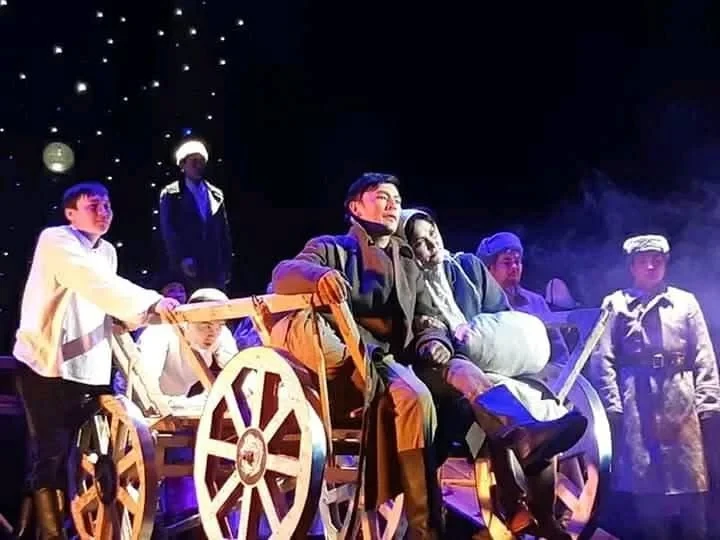
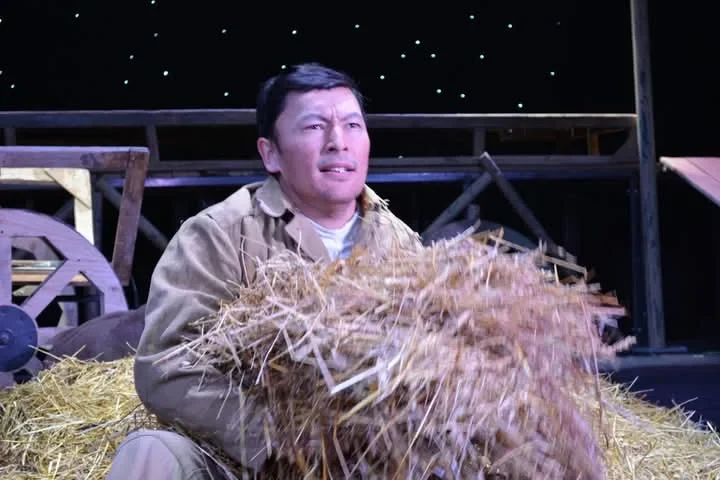
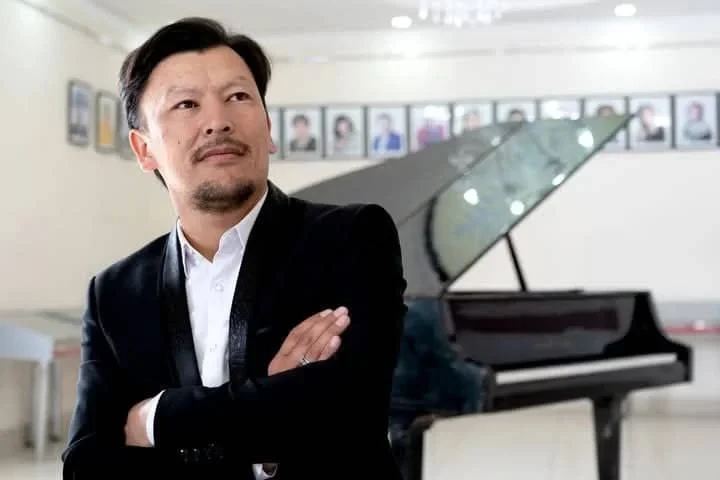
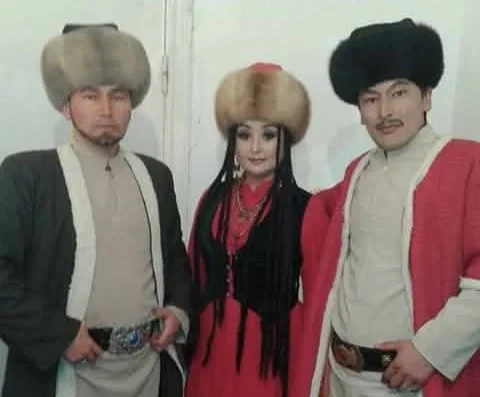
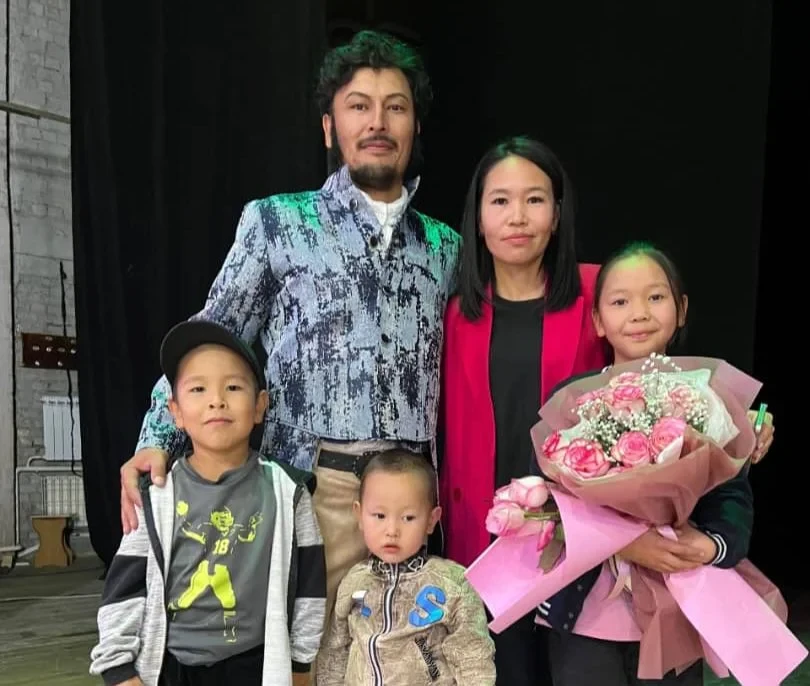
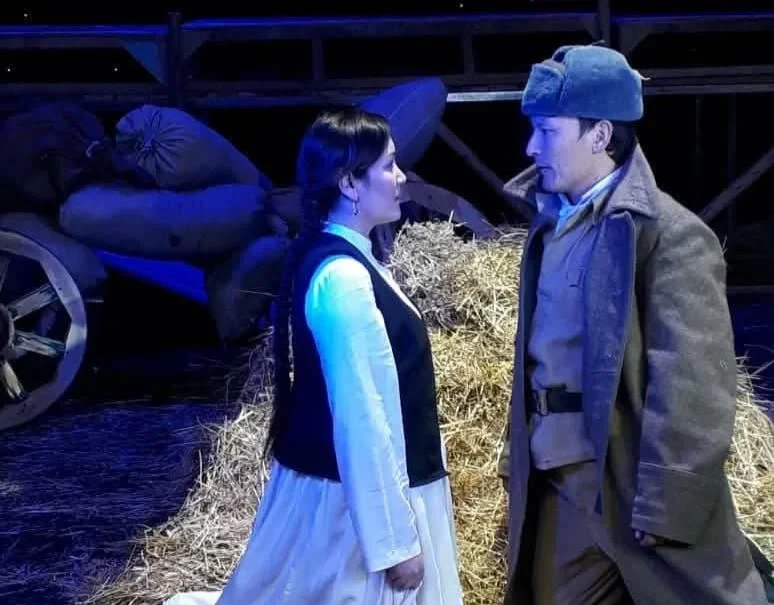
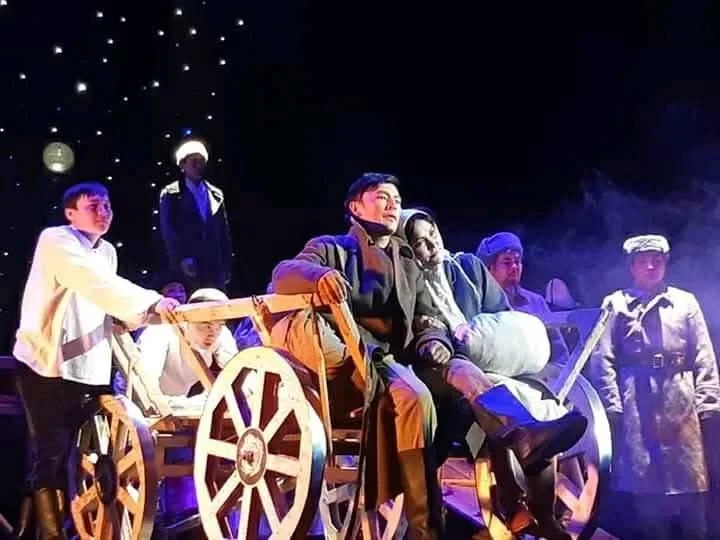
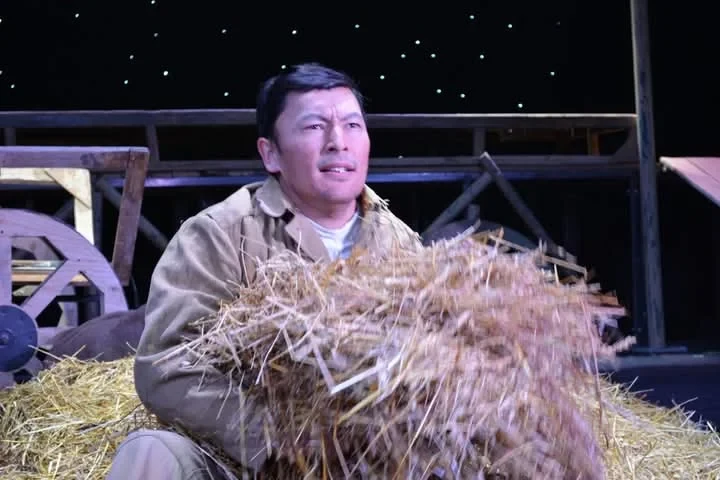
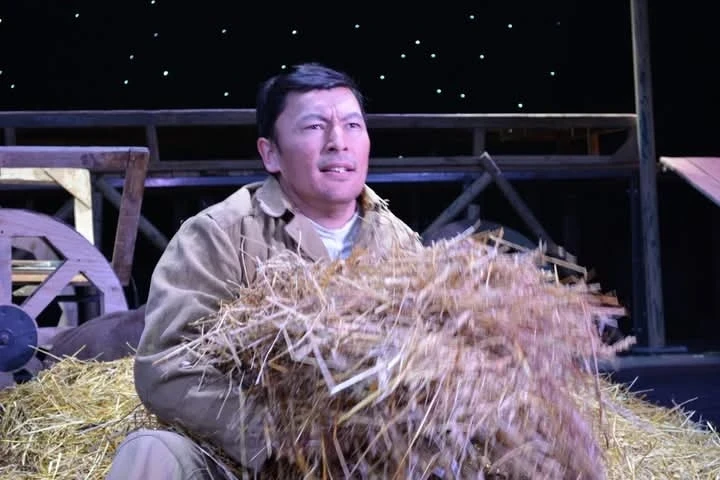
— When did you decide to become an actor? How did your theatrical career begin?
— I was born in the village of Tegirmenti, located in the Kemin district of the Chui region. After finishing high school, I entered the theater school at the Kyrgyz National Drama Theater and currently serve as an actor at the Naryn Regional Academic Drama Theater named after M. Ryskulov. My interest in acting appeared in childhood: I actively participated in school competitions and events. Teachers often said that I had talent, which inspired me to continue my creative pursuits.
Later, I studied under such masters of stage art as Zamir Sooronbaev, Satybaldy Dalbaev, Tilek Jumagaziev, Gulayim Kanimetova, Duyshon Baydobotov, and Kalicha Seydalieva. I started with small roles in crowd scenes in performances of Kyrgyz Drama and gradually immersed myself in the theatrical environment. When I learned about vacancies at the Naryn Theater, I was the first to respond and left — it was a new and unfamiliar place for me, but my love for the profession led me there. For the first six months, I lived in the theater, and then I started a family and rented an apartment, which helped me become part of the team.
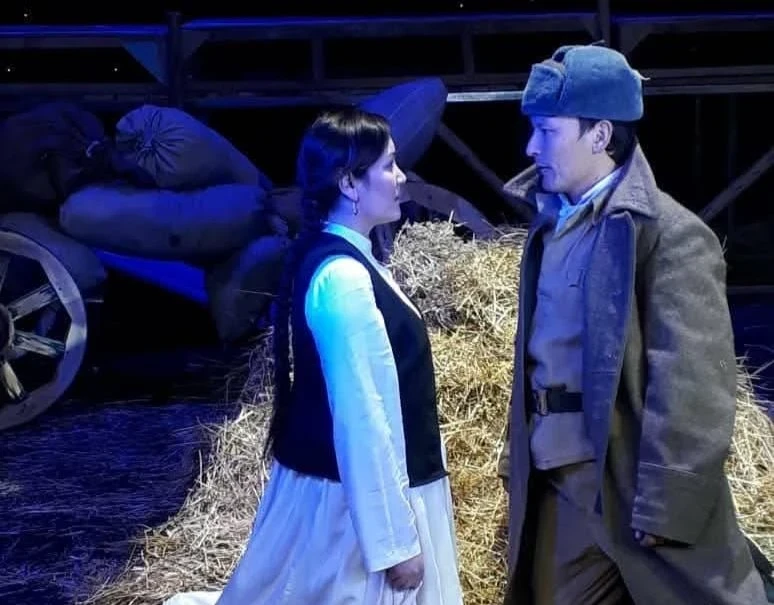
— What role did you play in your first performance?
— It was the play "Üküy menen Boogachy" by Kadyrbay Mambetakunov, where I played the role of Boogachy. The excitement before going on stage was intense, but the performance went well, and the audience began to recognize me on the street. One funny incident: my two-year-old daughter came with my wife to the performance, and when I played the scene where I was tied up, she shouted: "Dad is tied up!" — it was touching and stayed in my memory for a long time (laughs).
Later, I played many roles, including Daniyar in "Jamilya," Aziz in "Four People," and Ormon-khan in "Clash of the Nomads." Each role holds special significance for me — I invest all my strength and emotions into them.
— What qualities are important for a theater actor?
— Human qualities and responsibility come first. Even the most talented actor cannot succeed without responsibility, and without humanity, it is difficult to work as a team on stage.
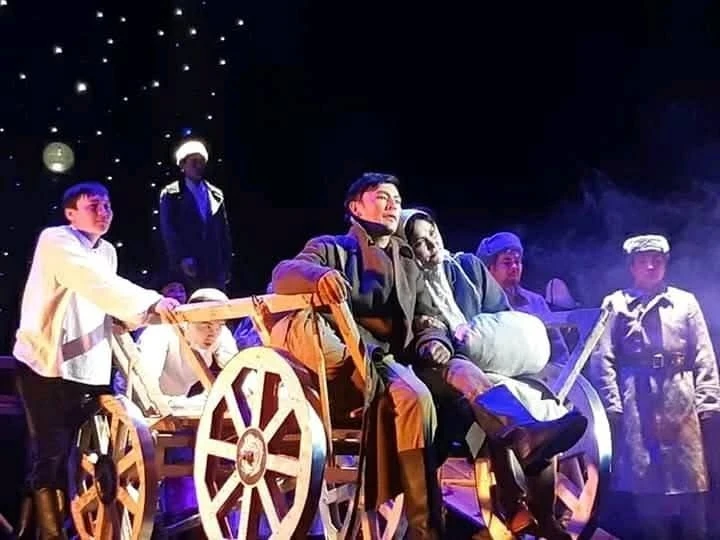
— How do you prepare for your roles?
— Preparation is a constant process. Like an athlete, an actor must maintain their form. Studying the character is another job. For example, when I was preparing for the role of Ormon-khan, I reread the play "Clash of the Nomads" several times, analyzing how people lived in that era and what my character was like. It is important for the audience to see not just an actor, but a hero, so we are always in search.
— What kind of father are you in your family?
— My family is my support and joy. My wife, Zarina Keldibek kyzy, works as a teacher, and we have three children. I try to be a caring and attentive father.
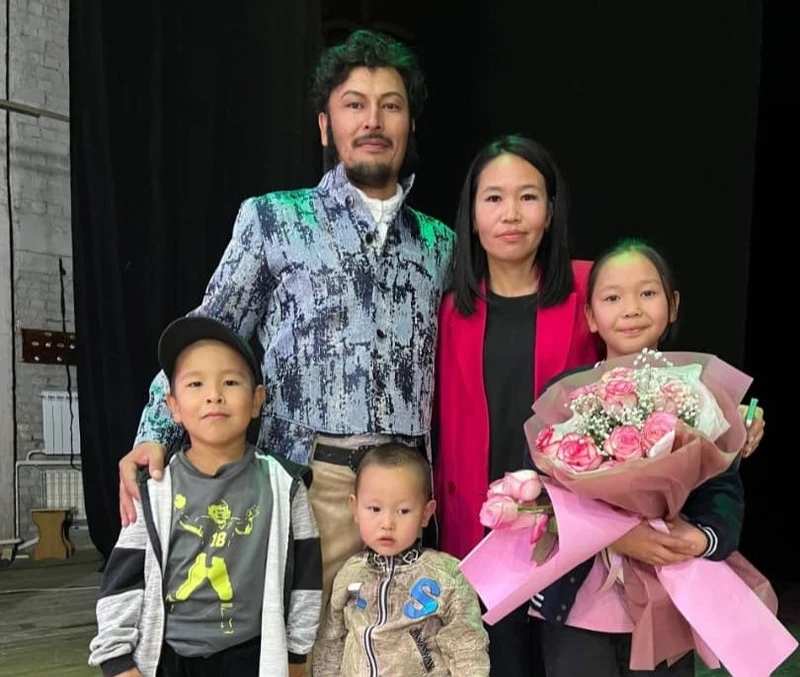
— Which of your roles was the most emotionally challenging?
— There are several such roles. For example, the role of Aziz from Mara Bayzhiev's play "Four People." I immersed myself in the character so much that I became more withdrawn and hardly communicated at home. The director said that my character was a soldier, and "soldiers don't cry," but in the farewell scene with Nazya, I couldn't hold back my tears.
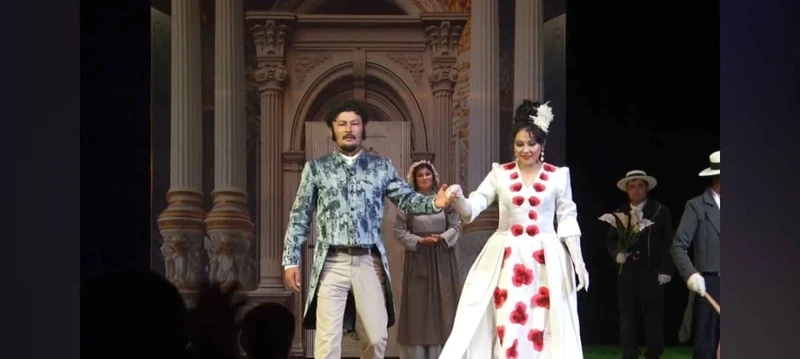
— What is the role of audience reaction in a performance?
— It is extremely important! Without the audience, actors are not needed. When the hall is full and the audience reacts actively, it gives the artist strength. But if someone gets distracted by their phone or leaves the hall, it is, of course, disappointing. Actors are sensitive people, and the attention of the audience is of great significance to them.
— Why does theater have a special power to impact the audience?
— Because theater is a living art. Unlike a film, which can be paused or rewound, a performance takes place in real time. The actor and the audience are in direct emotional contact. Theater has existed since the 2nd-3rd century BC, and that is its strength and uniqueness.
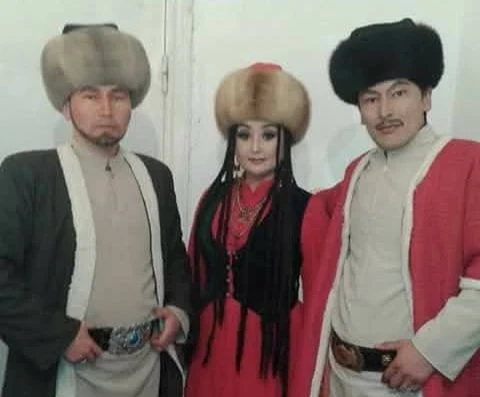
— What role can theater play in modern society?
— Theater can show young people and future generations who the Kyrgyz are, their traditions, customs, and the richness of their language. This is its primary purpose. Art, including theater, preserves culture and nation. Young people can see on stage the life of their ancestors, their attitude towards women, and values. That is why I say that theater is a wonderful and sacred place.

